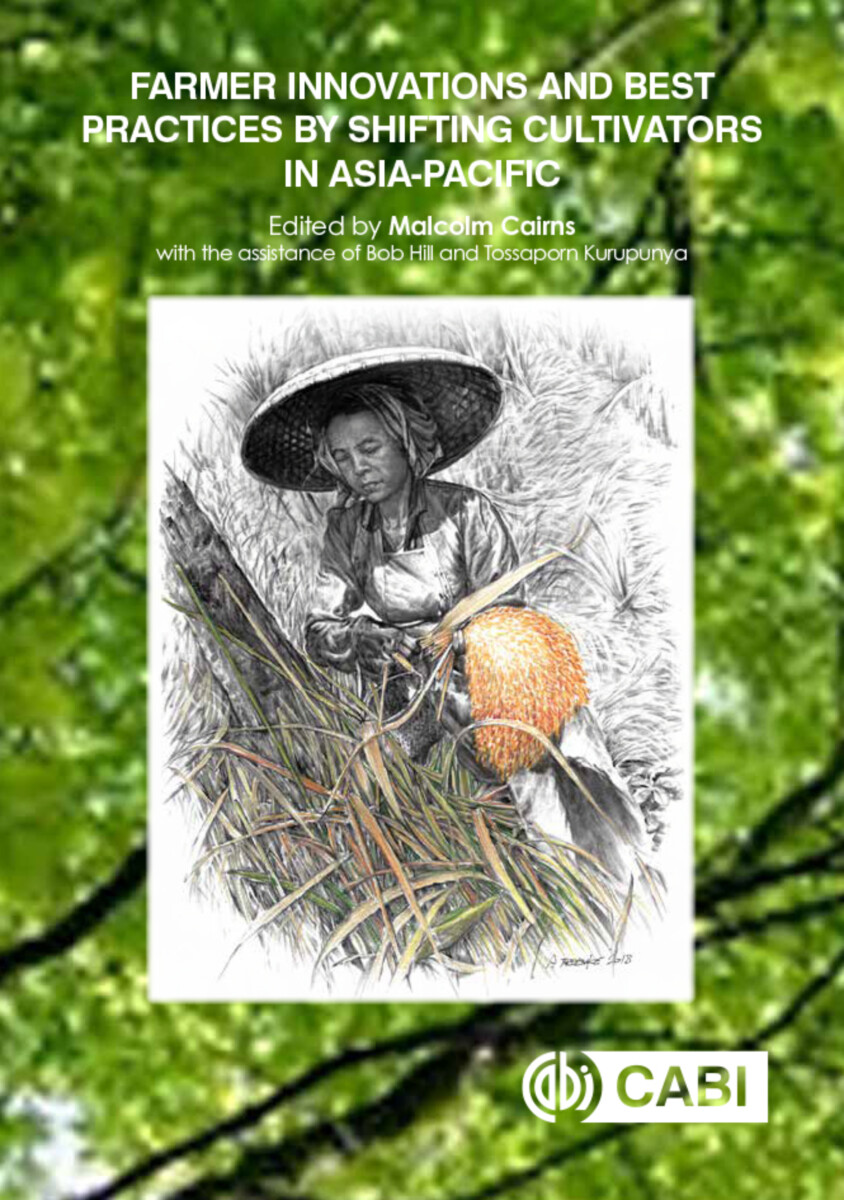Farmer Innovations and Best Practices by Shifting Cultivators in Asia-Pacific
- Publisher
CABI - Published
26th April 2024 - ISBN 9781800620094
- Language English
- Pages 1104 pp.
- Size 6" x 9"
This book, the third of a series, shows how shifting cultivators, from the Himalayan foothills to the Pacific Islands, have devised ways to improve their farming systems. Using case studies collected over many years, it considers the importance of swidden agriculture to food security and livelihoods, and its environmental significance, across multiple cultures, forest and cropping systems. There is a particular focus on soil fertility and climate change challenges. It is a 'must read' for those who realize that if the lives of shifting cultivators are to be improved, then far more attention needs to be directed to the indigenous and often ingenious innovations that shifting cultivators have themselves been able to develop. Many of these innovations and best practices will have strong potential for extrapolation to shifting cultivators elsewhere and to farming systems in general. This book:
- Highlights innovations of shifting cultivators.
- Combines solid science with accessible language and outstanding artwork.
- Provides a collection of case studies unprecedented in its scope.
Malcolm Cairns
Malcolm Cairns grew up on a dairy farm in eastern Canada, attended agricultural college, and then farmed in partnership with his father and brother before his interests in overseas development took him to Asia to work with a Canadian NGO. By 1991, he had decided that he was more interested in research, and left his job in Laos to return to Canada to complete a Masters degree in Environmental Studies. During his fieldwork for this degree, Malcolm worked under the auspices of IRRI in the Philippines and ICRAF in Indonesia, whilst studying shifting cultivation in both countries. After completing this degree, he returned to Indonesia to work as an Associate Scientist with ICRAF, continuing his work with shifting cultivation. During this time, he developed a keen interest in how shifting cultivators were adapting to increasing pressures on their farming systems, and began to focus on indigenous strategies for fallow management. This work continued until he left Indonesia in 1998 to begin work on a doctoral program at the Australian National University. Malcolm used his PhD fieldwork to undertake research on the most fascinating system of indigenous fallow management that he had found - the Naga's management of Himalayan alder in their swidden fields in Nagaland, N.E. India. He had barely completed his PhD studies in 2008 when a devastating stroke left him paralyzed on his left side and unable to continue fieldwork. Malcolm has since focused all of his attention on this series of volumes on shifting cultivation in the Asia-Pacific region.


